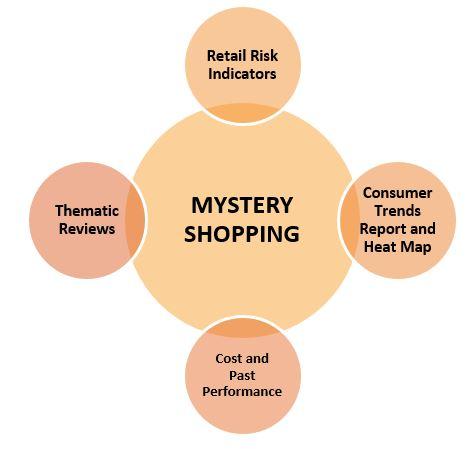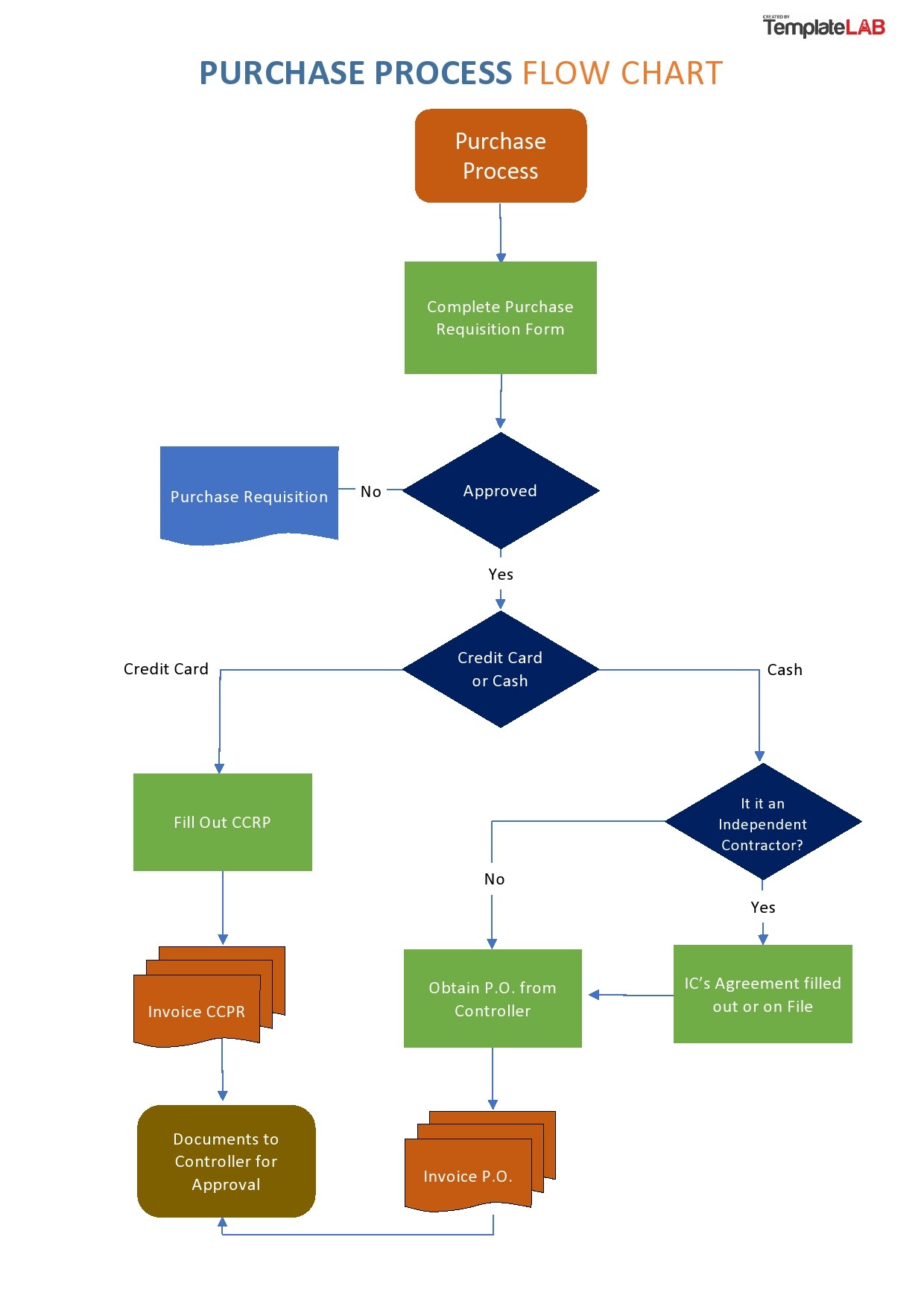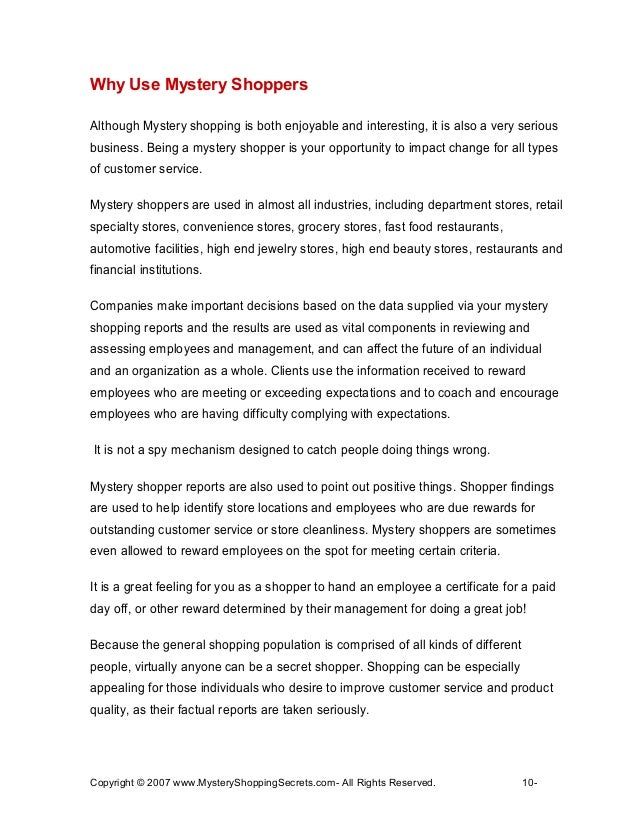What is Mystery Shopping and How Does it Work?
Mystery shopping is a market research technique used by businesses to measure the quality of service, products, and overall customer experience provided by their stores, restaurants, or service providers. The concept of mystery shopping has been around for decades, with its roots dating back to the 1940s. The goal of mystery shopping is to gather unbiased and objective feedback from customers, which helps businesses identify areas for improvement and make data-driven decisions.
In a typical mystery shopping scenario, a trained mystery shopper visits a store or restaurant, posing as a regular customer. The shopper observes and records their experience, taking note of various aspects such as customer service, product quality, cleanliness, and overall ambiance. The shopper then submits a detailed report to the client, providing feedback on their experience.
Mystery shopping benefits businesses in several ways. It helps them evaluate the effectiveness of their marketing strategies, identify areas for improvement, and measure the quality of service provided by their employees. By gathering feedback from mystery shoppers, businesses can make informed decisions to enhance the customer experience, increase customer satisfaction, and ultimately drive sales.
As a mystery shopper, one can expect to complete various types of assignments, including retail, restaurant, and service-based shops. Mystery shoppers may be required to make purchases, ask questions, or simply observe the surroundings. The role of a mystery shopper is to provide an objective and unbiased assessment of their experience, which helps businesses improve their operations and customer service.
For those interested in getting paid to be a mystery shopper, it’s essential to understand the concept and benefits of mystery shopping. By providing valuable feedback to businesses, mystery shoppers can earn a decent income while also contributing to the improvement of customer experiences. Whether you’re looking for a part-time job or a flexible way to earn extra money, mystery shopping can be a rewarding and lucrative opportunity.
How to Get Started as a Mystery Shopper: Requirements and Sign-up Process
To become a mystery shopper, one must meet certain requirements and follow a specific sign-up process. The typical requirements include being at least 18 years old, having a valid driver’s license, and possessing a reliable vehicle. Additionally, mystery shoppers must have a smartphone or digital camera to take photos and videos during assignments.
In terms of location, mystery shoppers can work from anywhere, but some assignments may require travel to specific locations. It’s essential to have a flexible schedule and be able to complete assignments during various times of the day and week.
To sign up as a mystery shopper, individuals can register with reputable mystery shopping platforms, such as Market Force, BestMark, or Second To None. These platforms connect mystery shoppers with clients who need their services. The sign-up process typically involves creating a profile, which includes providing demographic information, such as age, location, and shopping habits.
When creating a profile, it’s crucial to provide accurate and detailed information to increase the chances of being selected for assignments. Mystery shoppers should also ensure their profile is complete and up-to-date, as this will help them receive more assignment opportunities.
Some mystery shopping platforms may require a background check or a small registration fee. However, reputable platforms will never ask for payment or personal financial information. It’s essential to research the platform thoroughly and read reviews from other mystery shoppers before signing up.
Once registered, mystery shoppers can browse available assignments and apply for those that match their demographics and location. Assignments may include shopping at retail stores, dining at restaurants, or using services such as banks or gas stations.
By following these steps and meeting the necessary requirements, individuals can get paid to be a mystery shopper and start their secret shopping adventures. With the right mindset and skills, mystery shopping can be a fun and lucrative side hustle that provides valuable feedback to businesses and helps them improve their customer experience.
Types of Mystery Shopping Assignments: From Retail to Restaurants
Mystery shopping assignments can vary widely, depending on the client’s needs and goals. Some common types of assignments include retail shops, restaurants, service-based shops, and entertainment venues. Mystery shoppers may be asked to evaluate the customer service, product quality, cleanliness, and overall experience at these locations.
Retail mystery shopping assignments typically involve visiting stores such as department stores, grocery stores, or specialty stores. Mystery shoppers may be asked to evaluate the store’s layout, product selection, pricing, and customer service. For example, a mystery shopper may be asked to visit a clothing store and evaluate the sales associate’s knowledge of products, the store’s return policy, and the overall shopping experience.
Restaurant mystery shopping assignments involve evaluating the dining experience at restaurants, cafes, or other food establishments. Mystery shoppers may be asked to evaluate the service, food quality, ambiance, and overall experience. For example, a mystery shopper may be asked to visit a fast-food restaurant and evaluate the speed of service, the accuracy of orders, and the cleanliness of the restaurant.
Service-based mystery shopping assignments involve evaluating the service provided by businesses such as banks, gas stations, or hotels. Mystery shoppers may be asked to evaluate the customer service, the efficiency of the service, and the overall experience. For example, a mystery shopper may be asked to visit a bank and evaluate the teller’s knowledge of products, the wait time, and the overall banking experience.
Entertainment venue mystery shopping assignments involve evaluating the experience at locations such as movie theaters, bowling alleys, or amusement parks. Mystery shoppers may be asked to evaluate the customer service, the cleanliness of the venue, and the overall experience. For example, a mystery shopper may be asked to visit a movie theater and evaluate the concession stand service, the cleanliness of the theater, and the overall movie-going experience.
Regardless of the type of assignment, mystery shoppers must possess strong observation skills, attention to detail, and the ability to provide objective feedback. By completing these assignments, mystery shoppers can help businesses improve their customer experience and increase customer satisfaction. For those who enjoy shopping and trying new experiences, getting paid to be a mystery shopper can be a fun and rewarding side hustle.
How to Complete a Mystery Shopping Assignment: Tips and Best Practices
Completing a mystery shopping assignment requires attention to detail, objectivity, and strong observation skills. To ensure a successful assignment, mystery shoppers must follow a set of guidelines and best practices. Here are some tips to help you complete a mystery shopping assignment effectively:
Pre-Assignment Preparation: Before starting an assignment, read and understand the instructions provided by the client. Familiarize yourself with the location, the type of business, and the specific tasks you need to complete. Make sure you have all the necessary equipment, such as a camera or smartphone, to complete the assignment.
Observation Techniques: During the assignment, observe the surroundings, the staff, and the products or services offered. Take note of the cleanliness, the ambiance, and the overall atmosphere of the location. Pay attention to the staff’s behavior, their knowledge of products, and their customer service skills.
Note-Taking Strategies: Take detailed notes during the assignment, including the date, time, and location of the visit. Record the names of the staff members you interact with, their titles, and their behavior. Note the products or services you purchased, the prices, and the quality of the products.
Report-Writing Tips: After completing the assignment, write a detailed report of your experience. Include all the observations, notes, and photos you took during the assignment. Be objective and provide constructive feedback to the client. Use a clear and concise writing style, and avoid using jargon or technical terms.
Objectivity and Attention to Detail: As a mystery shopper, it’s essential to remain objective and provide unbiased feedback. Avoid making assumptions or jumping to conclusions. Pay attention to details, and make sure you provide accurate and reliable information.
Time Management: Manage your time effectively to complete the assignment within the given timeframe. Make sure you have enough time to complete all the tasks, take notes, and write the report.
By following these tips and best practices, you can complete a mystery shopping assignment effectively and provide valuable feedback to the client. Remember, getting paid to be a mystery shopper requires attention to detail, objectivity, and strong observation skills. With practice and experience, you can become a successful mystery shopper and enjoy the benefits of this lucrative side hustle.
Getting Paid as a Mystery Shopper: Fees, Expenses, and Tax Implications
As a mystery shopper, you can expect to earn a fee for each assignment you complete. The fee amount varies depending on the client, the type of assignment, and the location. On average, mystery shoppers can earn between $10 to $50 per assignment, although some assignments may pay more or less.
In addition to the fee, mystery shoppers may also be reimbursed for expenses related to the assignment, such as transportation costs, meal expenses, or product purchases. The reimbursement amount varies depending on the client and the assignment requirements.
It’s essential to understand the tax implications of mystery shopping income. As a mystery shopper, you are considered an independent contractor, and your earnings are subject to self-employment tax. You may need to report your income on your tax return and pay self-employment tax on your earnings.
To maximize your income as a mystery shopper, it’s crucial to complete assignments efficiently and effectively. This includes following the client’s instructions, providing detailed reports, and submitting your reports on time. You can also increase your earnings by completing multiple assignments per week, although this may require more time and effort.
Some mystery shopping platforms offer additional incentives, such as bonuses or rewards, for completing assignments or referring friends to the platform. These incentives can help increase your earnings and make mystery shopping a more lucrative side hustle.
Getting paid to be a mystery shopper requires attention to detail, strong observation skills, and the ability to provide objective feedback. By following the client’s instructions, providing detailed reports, and submitting your reports on time, you can earn a decent income and enjoy the benefits of mystery shopping as a side hustle.
On average, experienced mystery shoppers can earn around $500 to $1,000 per month, although this amount varies depending on the number of assignments completed, the fee amount, and the reimbursement expenses. With the right skills and experience, mystery shopping can be a lucrative side hustle that provides a decent income and flexible working hours.
Real-Life Examples of Mystery Shopping Success Stories
Many individuals have turned mystery shopping into a lucrative side hustle, earning a substantial income by completing assignments and providing valuable feedback to businesses. One such example is Sarah, a stay-at-home mom who started mystery shopping to supplement her family’s income. She signed up with several mystery shopping platforms and began completing assignments in her local area. Within a few months, Sarah was earning an average of $500 per month, which helped her family pay off debt and build savings.
Another example is Mark, a retired teacher who turned to mystery shopping as a way to stay active and engaged in his community. He focused on completing restaurant and retail assignments, using his keen observational skills to provide detailed reports. Mark’s earnings from mystery shopping allowed him to travel and pursue his hobbies, and he even started a blog to share his experiences and tips with others.
Emily, a college student, used mystery shopping as a way to earn extra money during her summer breaks. She completed assignments in her local area, focusing on retail and service-based shops. Emily’s earnings from mystery shopping helped her pay for textbooks and living expenses, and she even used the experience to build her resume and develop her observational and reporting skills.
These success stories demonstrate the potential of mystery shopping as a side hustle. By signing up with reputable platforms, completing assignments, and providing high-quality reports, individuals can earn a substantial income and enjoy the flexibility and autonomy that comes with mystery shopping. Whether you’re looking to supplement your income, pay off debt, or build savings, mystery shopping can be a lucrative and rewarding opportunity.
As a mystery shopper, you can earn money by completing assignments, and get paid to be a mystery shopper. The amount you can earn varies depending on the type of assignment, the location, and the client. However, with the right skills and experience, it’s possible to earn a substantial income and enjoy the benefits of mystery shopping.
Common Mistakes to Avoid as a Mystery Shopper: Lessons Learned
As with any profession, mystery shopping has its own set of challenges and pitfalls. New mystery shoppers often make mistakes that can impact their performance, reputation, and earnings. By understanding these common mistakes, individuals can take steps to avoid them and improve their chances of success in the industry.
One of the most common mistakes made by new mystery shoppers is poor observation skills. Mystery shoppers are required to observe and record details about their shopping experience, including the behavior of sales staff, the cleanliness of the store, and the quality of products. However, many new mystery shoppers fail to take detailed notes, leading to incomplete or inaccurate reports. To avoid this mistake, mystery shoppers should develop their observation skills by practicing active listening and note-taking.
Another mistake made by new mystery shoppers is failure to follow instructions. Mystery shopping assignments often come with specific instructions and guidelines that must be followed in order to complete the assignment successfully. However, some mystery shoppers fail to read or follow these instructions, leading to incomplete or inaccurate reports. To avoid this mistake, mystery shoppers should carefully read and follow the instructions provided for each assignment.
Incomplete reports are another common mistake made by new mystery shoppers. Mystery shoppers are required to submit detailed reports about their shopping experience, including observations, notes, and ratings. However, some mystery shoppers fail to provide complete reports, leading to delays or rejection of their work. To avoid this mistake, mystery shoppers should ensure that they provide complete and detailed reports for each assignment.
Finally, some mystery shoppers make the mistake of being too obvious or conspicuous during their shopping experience. Mystery shoppers are required to blend in with other customers and avoid drawing attention to themselves. However, some mystery shoppers fail to do this, leading to suspicion or detection by store staff. To avoid this mistake, mystery shoppers should practice being discreet and unobtrusive during their shopping experience.
By avoiding these common mistakes, individuals can improve their performance and reputation as mystery shoppers. Remember, getting paid to be a mystery shopper requires attention to detail, strong observation skills, and the ability to follow instructions. By developing these skills and avoiding common mistakes, individuals can succeed in the industry and earn a lucrative income.
Conclusion: Turning Your Passion for Shopping into a Lucrative Career
Mystery shopping offers a unique opportunity for individuals to turn their passion for shopping into a lucrative side hustle. By becoming a mystery shopper, individuals can earn a substantial income, develop new skills, and enjoy the flexibility and autonomy that comes with this type of work. Whether you’re looking to supplement your income, pay off debt, or build savings, mystery shopping can be a rewarding and profitable venture.
As we’ve discussed throughout this article, mystery shopping involves completing assignments and providing feedback to businesses on their products, services, and customer experience. By following the tips and best practices outlined in this article, individuals can improve their performance and reputation as mystery shoppers, and increase their earning potential.
Getting paid to be a mystery shopper requires attention to detail, strong observation skills, and the ability to follow instructions. However, with the right skills and experience, individuals can succeed in this industry and earn a lucrative income. Whether you’re a stay-at-home parent, a student, or a retiree, mystery shopping offers a flexible and rewarding way to earn extra money and pursue your passion for shopping.
So why not give mystery shopping a try? Sign up for a reputable mystery shopping platform, complete your profile, and start applying for assignments in your area. With the right mindset and skills, you can turn your passion for shopping into a lucrative career and start earning money as a mystery shopper today.
Remember, mystery shopping is a legitimate way to earn extra money, and with the right approach, you can succeed in this industry and achieve your financial goals. Don’t be afraid to take the first step and start your mystery shopping journey today.






